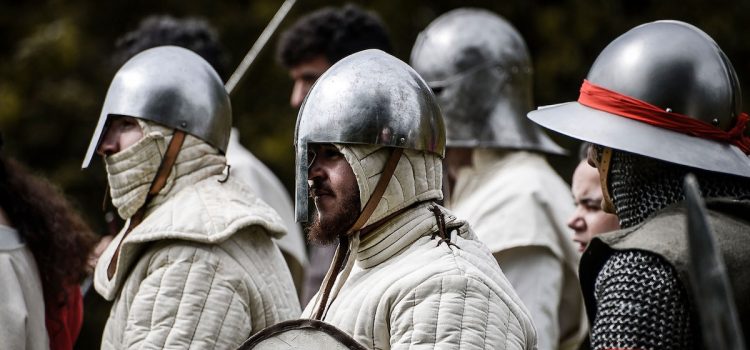

This article is an excerpt from the Shortform book guide to "The Prince" by Niccolò Machiavelli. Shortform has the world's best summaries and analyses of books you should be reading.
Like this article? Sign up for a free trial here .
When it comes to building an army for war, what does Machiavelli advise? What’s the secret to finding loyal soldiers?
In The Prince, Niccolò Machiavelli distinguishes three types of armies: hired forces, borrowed forces, and personal forces. He cautions princes to avoid hired forces, to be wary of borrowed forces, and to opt for personal forces when possible.
Continue reading for a brief discussion of Machiavelli on war forces.
Hired and Borrowed Forces
Hired forces are a preexisting mercenary group that a prince pays for their services, while borrowed forces are soldiers loaned to a prince by another prince or government, either because they’re working towards a common goal or as a show of goodwill between nations. There are two issues with hired or borrowed forces: They’re not loyal to the prince, and using them puts the prince in debt, either literally or in terms of relying on another ruler for monetary and military support.
Personal Forces
When it comes to advice from Machiavelli on war, he argues that all princes should have personal forces. Developing a personal army has several advantages: The prince relies solely on their own resources, they have full control over how their army is organized and run, and they can enforce loyalty within the ranks through a combination of legal structures (such as making desertion a crime) and social shaming (encouraging the populace to see military service as part of their patriotic duty).
Princes should not just be the heads of their states on the civilian side of things; they should be seen as military leaders. Machiavelli writes that, for a prince, strong ‘arms’ are just as important as strong laws, and even a prince who has no direct interaction with soldiers should make an effort to be knowledgeable about military tactics and warfare. If a prince does have personal involvement with commanding the military, they’re more able to use their personal forces as a resource and are thus more secure in their position.
| Machiavelli’s Militia Under the Florentine Republic, Machiavelli proposed and then organized the city’s personal militia. This militia saw a number of military successes before it was eventually defeated and dissolved when the Medicis took over. In making this point, Machiavelli may have been defending his past actions and encouraging the Medici to follow his example—rather than relying on papal forces and therefore a continuing relationship with Rome, the rulers of Florence could train and organize their own troops, always have them on hand to defend the city, and encourage patriotism among the general population and the soldiers alike. Having a personal army would also stabilize their government against rebellion, which was a threat they had faced before. |

———End of Preview———
Like what you just read? Read the rest of the world's best book summary and analysis of Niccolò Machiavelli's "The Prince" at Shortform .
Here's what you'll find in our full The Prince summary :
- Niccolò Machiavelli's description of how authoritarian leaders should rule
- An unapologetic depiction of the “real truth” of politics
- Analyses of how Machiavelli's lessons survive in modern-day politics






